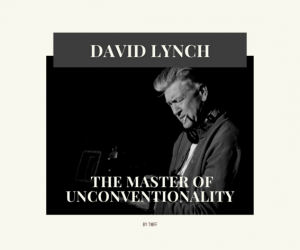I love films, and I’ve loved them for a very long time. And, as a film-lover, nothing makes me more angry than seeing a good film butchered and stripped away from what makes it as it is in the first place. Yes, I’m talking about the actors’ voices, which quite a few countries around the world replace with other voices, so that their citizens don’t have to make an effort to read words on a screen. Because reading words on screens is so absurd in our day and age, isn’t it? I had a discussion with my colleagues about this topic at lunchtime this week, which inspired me to tackle this particular topic. What bothers me is that not only is this dilution of artistic value so widespread and commonplace, but people around the world seem to accept it as normal, without being at all bothered by the lip-sync discrepancy that comes with it. Sure, people can get used with anything if they grow up with it, but that list includes growing up in poverty, walking for hours every day in order to access educational facilities and healthcare services, and having no freedom of expression. And none of these things are desirable.
The History of Dubs and European 20th Century Nationalism
Dubs were first introduced around the early to mid 20th century, as cinema transitioned from silent films to sound films which included spoken lines. Incidentally, this period also coincided with the rise of nationalism in many European countries, which seems to have affected the nature in which entertainment is consumed across the continent even many decades after the regimes collapsed. During the 1930, the release of movies in foreign languages was banned in Mussolini’s Italy, for political reasons. With the same line of reasoning in mind, entertainment in Nazi Germany was kept under tight censorship – after all, the film industry had to be in line with Hitler’s extreme nationalism, as it was a key instrument in his propaganda machine. Any foreign productions which made their way past a rigorous checking process were butchered and dubbed in German. The same held true for Franco’s Spain – a regime built on a slightly different type of nationalism, but one which held the same intense distaste for foreign languages.
Interestingly enough, almost a century later, all these countries have democratised, but these nationalism-rooted preferences still remain. Today, the countries with the highest rejection rates of subtitles are Austria (more than 70%), followed by Italy, Spain and Germany. The status quo in other countries is also highly dependent on key historical developments or decisions. The Soviet Union used dubbing as part of its communist censorship, and this held until the 1980s and the beginning of its period of turmoil which eventually let to its collapse. During these times, a lot of previously-banned films started flooding in, under the form of low-quality hope-copied videos, with a very primitively done voice-over dub often being done by one person for all the actors in the film. This method, although improved in the meantime, surprisingly stood the test of time, and is still present in today’s Russia. In Brazil, most films were shown in their original language with subtitles, until the edict of controversial president Jânio Quadros in 1962, who decided that all foreign productions should be dubbed in Portuguese. This is thought to have been a political decision, as he was at the time engaging in a balancing act between the United States and the Eastern Bloc. Another interesting example is the Quebec province in Canada, where French dubs are commonplace out of fear that otherwise, English would gain more and more prominence until it would replace French as the official language.
Correlation with poor foreign language performance
If we take a look at a recent English Proficiency Index, the top countries are usually Sweden, Norway, Iceland and The Netherlands, as well as a number of Eastern European nations, which all share one characteristic: they never dub foreign films, with the exception of children shows. Exhibiting moderate to low English proficiency are Spain, Italy, France, as well as virtually all Latin American countries, which, surprise-surprise, dub their films. And it’s not just about the beneficial effects that exposure to programmes in a variety of languages has on the individual – especially if done from youth. Reasearch points out that people born and raised in countries which use subtitles rather than dubbing have a higher chance of exhibiting liberal values and are less racist, xenophobic and nationalistic, on average, than those who are born and raised in a dubbing country.
Benefits of subtitles
Subtitles allow viewers to hear how other languages sound like, how inflections work, how emotions are transmitted. A lot of context is transmitted through the use of spoken language – and you don’t need to understand it to notice its particularities. Subtitles offer a gateway into a different culture, and teach you about it without becoming imperialistic all of a sudden. A good subtitle is like a proper dish from a faraway land – made with love and care to reflect the original, not adapted to local tastes and diluted of its very essence as a result, as is the case with dubs. Films are not just about getting from point A to point B in a story, but very much so about the journey. And what would be the value of a journey into the unknown if the unknown was exactly like our own backyard?
A sad butchery of the original
So far we talked about the roots of dubbing, as well as its outcomes on language ability and character building. However, these are indirect relationships – the direct relationship is about how a dub affects the quality of the film in which it is present. Of course, this can no longer be backed by science, as it’s highly subjective territory. Therefore, I will quite quoting research and tell you how I personally feel about it. It annoys me, first and foremost, because by virtue of replacement, it shows a lack of respect toward each original actor’s work. Second, it destroys the synergies between the actor’s/actress’ non-verbal performance and his or her verbal roles – acting comes under many forms, and often, they manifest themselves concomitantly. By separating and replacing a part of the performance, the overall value of the final outcome drops. And third, dubs often do not make contextual sense. If watching a film set in Tokyo and performed exclusively by Japanese actors, why would they speak Italian? Sure, that could work to great effect in a comedy or parody – The Death of Stalin uses a variety of British and American accents in a very smart way – but when it’s done in every case regardless of the context, it’s stupid. I guess using methods successfully employed by extremist governments last century still guarantees box office, and money is more important than keeping art pure. *sigh*

















Mahmud
I’m totally with you on this one! And thanks for the history lesson as well:) great article!
Selene
Awesome article.